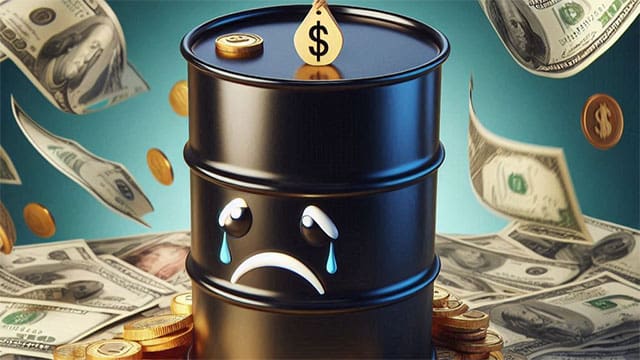Analysts predict oil prices will range from US$50 to US$70 a barrel in 2025 due to energy supply surplus and economic instability

For interview requests, click here
As we usher in 2025, the global oil market is bracing for significant challenges and uncertainties that could profoundly impact the world’s economy and security. From supply surpluses and volatile demand to geopolitical tensions and economic instability, the upcoming year promises to test the resilience of energy markets like never before.
Despite some stabilization efforts, oil prices have been under relentless pressure due to a supply surplus and ongoing demand concerns. The International Energy Agency (IEA) projects that 2025 will be marked by a comfortable supply, yet the surplus could make it difficult for OPEC+ to relax its guard and reinstate withheld production. This imbalance raises questions about the ability of oil markets to recover from this persistent strain.
The geopolitical landscape is also in flux, with Donald Trump’s return to the White House increasing uncertainty. Trump’s previous policies, including tariffs on imports and a focus on domestic drilling, had significant impacts on global oil markets. Increased U.S.-China tensions and unresolved conflicts, like the war in Ukraine, compound the uncertainty, making it difficult to predict how the global energy equation will shift.
 Trump’s return shaking up the North American energy landscape. |
| Recommended |
| Premiers clash over strategy as Trump tariffs threaten economy
|
| Trudeau’s leadership questioned as trade tensions escalate
|
| OPEC+ on borrowed time as global oil dynamics shift
|
In China, the once-reliable engine of global economic growth is faltering. Despite government stimulus efforts, the economy has yet to fully recover from the pandemic. China’s sluggish recovery is critical because it is the world’s largest crude importer. If China cannot revitalize its economy in 2025, oil markets will remain under significant pressure.
Domestically, Trump’s rhetoric about doubling down on U.S. drilling and imposing tariffs on imports from Canada and Mexico threatens to disrupt the North American energy landscape. Higher gas prices in the U.S., driven by such tariffs, could lead to decreased consumption, further impacting global oil demand. Additionally, Trump’s return to power has already stirred apprehension among international investors, possibly influencing market stability.
Another uncertainty, geopolitics, appears to have lost some of its influence in recent years. Interestingly, “price spikes from wars in the Middle East and the Ukraine-Russia war have been very short-lived, and prices have settled back and been drifting lower for months,” Ernie Miller, CEO of Verde Clean Fuels, told the Investing News Network (INN). Markets have shown resilience, apparently due to lowering demand.
With the wars in the Middle East and Ukraine winding down, the threat of price spikes due to geopolitical unrest appears to be diminishing. This could lead to more stable oil prices, assuming other factors remain constant.
Furthermore, the reportedly faltering climate agenda and the continuing growth in electric vehicles (EVs) worldwide are sure to significantly impact the global energy supply pattern. The transition to EVs is expected to reduce oil demand over time, contributing to the changing dynamics of the energy market.
Another important factor to consider is the aging infrastructure of major oil-producing countries. In Canada, nearly 40 per cent of the country’s infrastructure is nearing the end of its useful life, according to a 2023 Statistics Canada report. This underfunded and rapidly deteriorating infrastructure not only hampers economic competitiveness but also leaves the country ill-prepared to secure its supply chains and handle increased oil output.
Oil markets have entered a new, softer era. Most analysts project prices for the new year at around US$70 a barrel, but some suggest that crude market prices could drop to US$50 a barrel. This range highlights the uncertainty and evolving nature of the global energy market.
In 2025, the stakes are higher than ever. The world’s energy markets must navigate a labyrinth of challenges to ensure stability, security, and economic prosperity. The time for decisive leadership and strategic action is now.
Anything less would be unacceptable.
Toronto-based Rashid Husain Syed is a highly regarded analyst specializing in energy and politics, particularly in the Middle East. In addition to his contributions to local and international newspapers, Rashid frequently lends his expertise as a speaker at global conferences. Organizations such as the Department of Energy in Washington and the International Energy Agency in Paris have sought his insights on global energy matters.
Explore more on Energy security, Canadian economy, World economy
Troy Media is committed to empowering Canadian community news outlets by providing independent, insightful analysis and commentary. Our mission is to support local media in building an informed and engaged public by delivering reliable content that strengthens community connections, enriches national conversations, and helps Canadians learn from and understand each other better.
